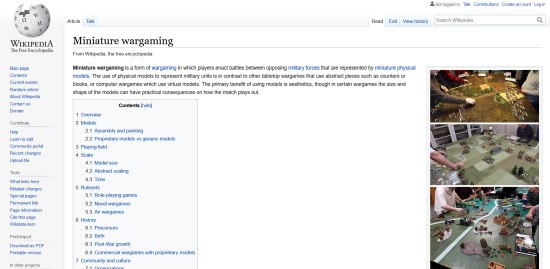Michael Genet - Beyond the Basics
Oh, he's got on an Optivisor!

I used to use an Optivisor a long time ago, but didnít see what it contributed to my work. Obviously, I was in error, as I saw plenty of them on the heads of the Reaper talent.
Mike took his baseball cap, reversed it with the bill to the back, and then put the Optivisor on, as he said it was more comfortable.
It was in this class that I discovered a major error I had committed. No notepads, no notebook. Bummer. So I opened up a box I had, and started taking notes on the box lid!

The class was designed to be one between beginner and intermediate levels. Here's some of the highlights of the class.

- Mike referred us to wetcanvas.com as a source for techniques that are applicable to artists as well as miniature painters. Some of these include blending and lining.
- Mike emphasized (as all of the painters did over the weekend) that to get a good-looking paintjob, you had to make your paints thin. How thin should you make it? Use a piece of cardboard and if it is just barely enough to see through, then that is thin enough. If it helps, write on the cardboard - and if you can read it through the paint, it's fine.
- Mike asked us if we felt comfortable with lining. The silence that met his question was more than enough answer. He stressed (and demonstrated) that lining sections of the miniature can be sloppily done before you put on the basecoat, but it's better to be neat to reduce your work later. Use a color that is close to what you will be using as the shadow color, and then as you apply the basecoat, work towards the lining.
- We discussed other tools to use, and Mike strongly recommended a ceramic palette, rather than a plastic one. He said they cleaned up better, and you didn't have to fight with your paint's residue.
- Mike talked to us a lot about other things as well. He demonstrated wet blending for us, using a side-to-side layout of colors and blending parallel to the figure's base. He also demonstrated the same technique, but vertically. Blends were from dark up to light.
One of the neat aspects of the classes is that the students share what they know. The Lost Soul had an alternative to the Optivisor Ė a Mageye. This is a lightweight version of a magnifying tool, and allows for more peripheral vision. Jason shared it around, and I bought one once I got home!








